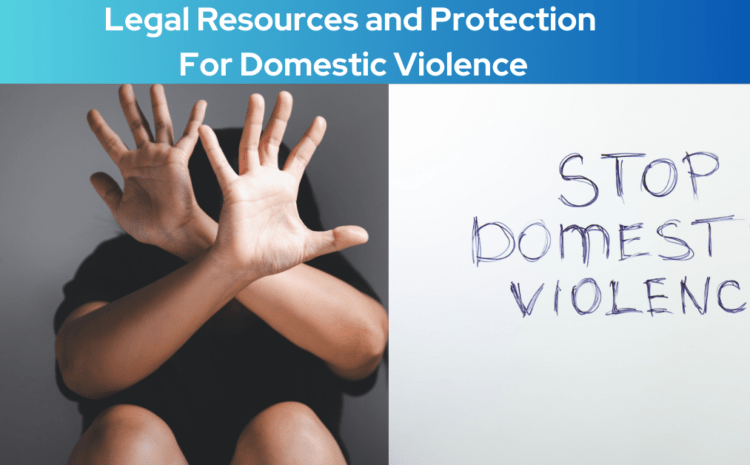
Marriages are though “made in heaven”,the option of staying in an abusive marriage is not a norm anymore. Men and women have stopped continuing marriages that involve physical abuse at the hands of the spouse and other members of the family. So have the changing times women’s empowerment and feminism changed the statistics of domestic abuse? And is domestic violence gender specific?
Let’s see what the recent statistics have said,
- According to a report by the National Institute of Health, “In India, 32% of ever-married women reported having experienced physical, sexual, or emotional violence by their husbands in their lifetime.”
- The Hindu states that “Spousal violence against men stands at 29 per 1,000”.
- A report in the Economic Times brings a startling revelation, “Almost 28,811 complaints of crimes against women were received in 2023”
This shows that men and women alike must have a comprehensive knowledge of the legal resources and protection for divorce and domestic violence.
March 8 is celebrated as Women’s Day. To make each day, a day towards the upliftment and empowerment of women it is necessary to understand the legal rights and provisions.
What falls under Domestic Abuse or Domestic Violence?
Domestic abuse is also called domestic violence or intimate partner violence. It is used to gain control over the spouse. This abuse can be of the nature of physical, sexual, emotional, economic, or psychological actions or threats. It is mostly used as a means of getting dowry, controlling, or terrorizing the spouse from speaking up publicly. Domestic violence affects the victim physically and emotionally on various levels. Thankfully, the Constitution of India has defined some solid legal resources and protective laws that shield individuals from the onslaught of abuse.
Constitutional and Legal Safeguards Against Domestic Violence in India
Constitution of India
As guaranteed under the supreme law, the men and women are equal before the law (Art 14) and no discrimination based on gender (Art 15). Article 15 (3) provides for the state to make special provisions for protecting the interests of women & children. Article 16 provides for equality of opportunity. These being the guaranteed fundamental rights of every citizen, there are also other provisions for the state to follow in order to empower and safeguard women.
Section 498-A and its Amendment
Section 498-A of the Indian Penal Code was introduced in 1983. The section 498-A is a special section added to the IPC 1983, that treats domestic violence as a criminal offence. The Indian Penal Code Amendment, 1983 has some key provisions that safeguard the rights of affected individuals.
Protection and safeguarding orders:
A victim of abuse can seek protection orders that can include restraining orders, residence orders, and relief related to money, to enable a secure and empowered future for the victim.
Right to residence:
Many women feel helpless thinking about the status of their residence if they raise their voices against domestic violence This act brings respite by enabling women to continue living in the family home, irrespective of their ownership.
Medical assistance and counseling:
After going through the trauma of abuse, women are physically and mentally shaken. The act ensures that victims can gain easy access to their medical needs and get counseling services to facilitate their faster recovery.
Legal aid and support:
Getting the right legal aid is imperative to make a strong case and get justice. The Act establishes the provision of legal aid and support to victims. This enables them to go through the legal process easily.
Protection of Women from Domestic Violence Act, 2005
The Protection of Women from Domestic Violence Act of 2005 has been a pioneering step that empowered women. It is an Act that provides effective protection of the rights of women guaranteed under the Constitution who are victims of violence of any kind. It states a punishment if found guilty that can extend up to 3 years in jail and a fine. Cruelty leading to suicide or extreme injury or danger to life, limb, or health is covered in this. It also includes instances of harassment about dowry demands.
Justice for Deceased under Section 304 B of IPC
In case of death due to domestic abuse, the state takes suo motto action or on the complaint of a relative a legal action under section 304B of IPC for all cases related to dowry deaths.
Emergency Orders and Restraining Orders
If the woman or man abused has taken the steps of unshackling from an abusive marriage, some legal provisions ensure that they are not harmed. Restraining orders are orders given by a court of law to help the victim lead a peaceful life away from the abusive spouse. A restraining order can be given through court stating the necessity of the abuser to stay away from the victim’s vicinity, failing which legal actions can be taken against the abuser.
Domestic Violence as a ground for Divorce
The victim here can seek matrimonial remedy where cruelty is one of the grounds for divorce. The records of police complaints, domestic violence case & dowry harassment case can be an evident in the matrimonial case.
Law for Tackling Misuse of Section 498-A
In early 2023, the Delhi High Court ruled that the safeguards provided by the Protection of Women from Domestic Violence (DV) Act, 2005 do not extend to men. Though section 498-A was made with good intentions, there have been trends of using the law wrongly to get revenge or to cause mental agony to the spouse.
Acting on this the Indian government has issued a new directive that helps affected people in using legal recourse through the stringent actions against misuse. Husbands can also file an FIR against his wife for filing a false 498a case. A defamation case can also be charged if the intent was solely to harm the reputation of the husband and extract money from him.
Safeguards under Article 21 of the Indian constitution
According to Article 21: “Protection of Life and Personal Liberty, each person has the right to live life fully and can’t be deprived of it, except according to procedure established by law. This means that every individual has the right to live, and their life cannot be taken away except by following the prescribed legal procedures.
No individual enters into holy matrimony thinking of a future laden with physical, mental, and emotional abuse. However, when instances like these arise it becomes imperative to break from the vicious cycle of such agony, understand the laws, and get expert legal help to navigate this sensitive space.

Advocate Kiran S R – A highly skilled, passionate, dedicated advocate, with vast wealth of knowledge, professionalism, ethical approach and expert skills. One of the sharpest legal mindset brings the best principles of legal practice to the forefront. A qualified Engineer turned Advocate. His passion, dedication and vision to help and assist his clients achieve the best results is his driving force.

